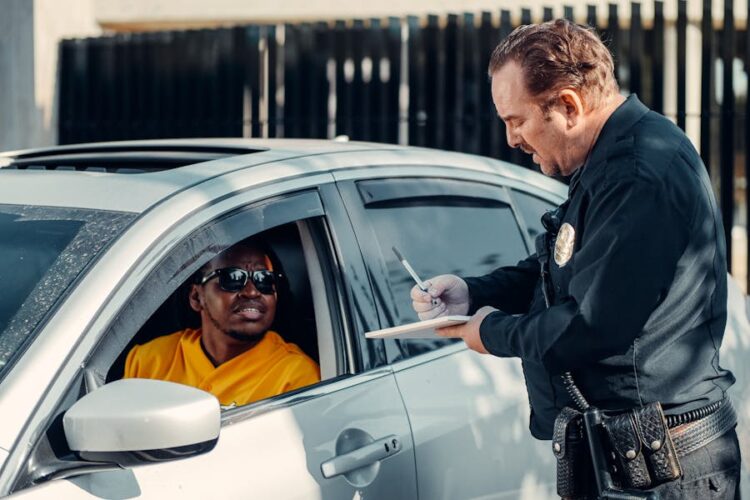We have all been involved in or witnessed a traffic violation at least once. Take parking tickets as an example; they are widespread in our daily lives. Traffic tickets are tickets issued for driving or parking your car improperly. Among the most common examples are distracted driving (responsible for 8% of fatal crashes in 2021) and speeding. While these are often common tickets, contesting one can prove to be a complicated ordeal. Below, we examine the steps involved in fighting a traffic ticket.
1. Review the Ticket Carefully
The first step to receiving a legal notice is to read and understand it thoroughly, and the same goes for traffic tickets. Upon receiving your ticket, check for date, time, and location details errors. Verify that the ticket accurately lists your vehicle’s name, color, and model, as well as the details of the violation you allegedly committed and the officer’s information.
Make sure to do a proper check, as discrepancies in any of these details could impact the ticket’s validity. For instance, if the ticket states you were cited for speeding but were cited for an expired registration, it would indicate an error leading to the potential dismissal of the ticket.
2. Do Your Research
Understanding legal procedures is a vital step in contesting your ticket. Firstly, look up the offense and understand its legal specifics. For example, if you receive a ticket for speeding, find out what constitutes speeding and speed limits if needed. Check your state laws on a government website or local ordinances if you belong to a county.
You can further research court cases like yours and their outcomes to get real insights into your situation. Doing your research this way will help you prepare for a potential trial and boost your confidence.
3. Gather Evidence
Gathering evidence is a concrete step for substantiating your case. Take photos of any signs you see around the scene of the alleged violation, including pictures of the road condition. Gather dashcam footage from nearby cars and CCTV highlights.
You will also require witness testimonies, so take the contact information of those who witnessed the scene. Better yet, you can take written statements from them, ensuring they are accurate and thorough. Additionally, gather and compile your car documents, including maintenance records. Make sure all the written and visual proof is clearly labeled and organized neatly and comprehensively in your file. You don’t want to scramble for records in front of the judge.
4. Decide How to Plead
Review the evidence and weigh the pros and cons of pleading guilty or not guilty in terms of the financial and emotional implications of your plea. If you plead guilty, you will have to pay a fine, which will go on your record; you might also face higher insurance rates. When pleading not guilty, the ticket will be contested, and you will request a hearing.
A third option is no contest. This is similar to pleading guilty, except you do not admit to fault. This option is usually chosen when the defendant does not wish to go through a trial. The consequences are similar to those of a guilty plea.
5. Prepare Your Case
If you plead not guilty and wish to have your ticket contested, this is the most crucial step for your trial and requires your keen consideration. Here is what you need to do to prepare your case:
- Review the evidence: Assess the strengths and weaknesses of your proof, identifying discrepancies and addressing any information gaps.
- Outline your approach to defense: Using the evidence and research, determine the main arguments that will support your case. These arguments could be based on factual errors or legal justifications. Make sure your arguments are in line with the laws in your jurisdiction.
- Create a summary of the case: Make a written summary, and establish the order in which you will present your evidence. Be concise and organized so as not to jumble up your justifications.
- Prepare witnesses: Brief your witnesses about the process and what to expect, and have them know how vital their testimony is. Ensure they are well prepared and ready; you can practice with them beforehand in mock hearings.
- Prepare legal documents: Complete any required court forms or documents and submit them by the deadlines. This step also includes labeling and submitting evidence according to the court’s standards.
- Plan your court appearance: Familiarize yourself with court etiquette and dress appropriately. Learn how to address the judge and the process for questioning witnesses.
When it comes to preparing your case, you will have to attend to hundreds of minute details, which is why it is better to let a lawyer do it for you. Lawyers are well-versed in court proceedings and can ensure your case adheres to all rules and procedures. If you are preparing to contest a ticket in Queensland, turn to Sunshine Coast traffic lawyers for excellent legal expertise and strategic guidance on navigating the complexities of traffic law.
6. Understand the Outcome
The judge will either make a decision immediately or issue a verdict later. In any case, make sure you understand what the outcome entails. You will not be legally answerable for the offense if you are not found guilty. However, if you are found guilty, the magistrate will decide how to proceed. You will likely get demerit points recorded against your driver’s license for driving offenses.
Similarly, you might be asked to pay a fine. If you have trouble paying the fine, you can ask the magistrate to either make a plan to pay in installments or give you community work instead. Your license can also be suspended depending on how severe the offense was. You might be asked to enroll in a driving school in other cases.
Learning and Adjusting
It is helpful to assess your driving habits once you have received a traffic ticket, regardless of its outcome. Take the opportunity to learn from this incident and consider what changes you can make to prevent similar mishaps in the future. This might involve adopting safer driving habits, paying better attention to speed limits and road signs, and avoiding distractions while driving. Transform this challenge into a personal growth moment, and make your driving experience more mindful of your safety and that of your loved ones.
Endnote
Controlling your traffic ticket can prove your innocence and protect your record. Follow the steps mentioned above to get your ticket contested, and do not hesitate to hire a lawyer to guide you through the process. Remember to learn from your mistakes no matter the outcome, and work to make positive changes following the incident.










